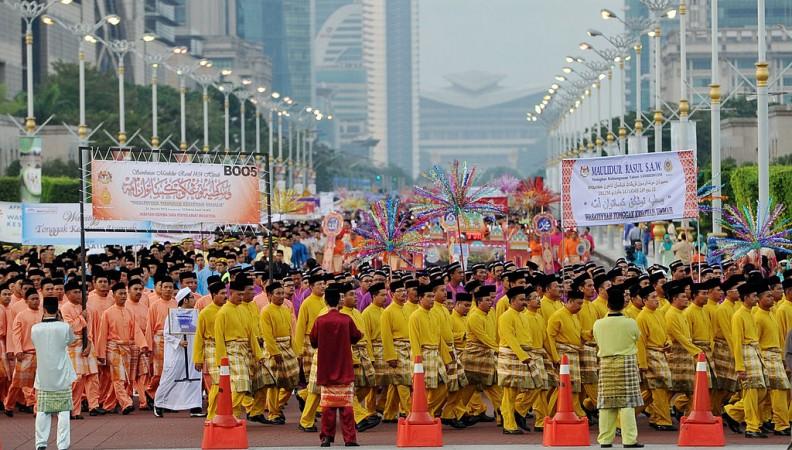
The birthday of Prophet Muhammad, also known as 'Mawlid', is celebrated on 12th day of the Islamic month of Rabi'al-awwal by Sunni Muslims while the Shi'a Muslims mark it on the 17th of the same month.
This year, the official Mawlid starts on Friday evening, 2 January, and ends on Saturday evening, 3 January.
Some people see the Prophet's birthday as an event that is worthy of praise and celebrations while others believe the celebration of birthdays are against the Islamic law. Whatever maybe the case, here are five interesting facts to know about 'Mawlid' or the observance of the birthday of Prophet Muhammad:
No Precise Date of Birth
Prophet Muhammad is widely believed to have been born in Mecca, in present day Saudi Arabia, in AD 570. However, the precise date of his birth remains unclear to this day. Sunnis, nonetheless, observe the prophet's birthday on the 12th day of the Islamic month of Rabi' al-Awwal while Shiites marks the event on the 17th of the month. Also, the 17th day of the Muslim month is also observed as the birthday of the sixth Shi'a imam, Ja'far al-Sadiq.
The Meaning of 'Mawlid'
'Mawlid', the word – sometimes called 'Milad' – is generally understood to have come from the Arabic word for 'birth' and usually refers to the birth anniversary of Prophet Muhammad. The day is also referred to with different names such as 'Mevlid Serif' in Turkish, 'Mawlud Sharif' in Urdu and 'Maulidur-Rasul' in Malay.
Also the Birthdays of 3,000 Sufi Saints
In Egypt and Sudan, the term 'Mawlid' is used not only to observe the birthday of Prophet Muhammad, but also those of several local Sufi saints. In fact, birthdays of about 3,000 Sufi saints are marked or celebrated on the same day. One of the most notable of these celebrations that attracts many visitors from various countries is the celebration of Amed el-Bedawi's birthday. He lived about 700 years ago and is considered to be the founder of Badawiyyah Sufi order.
Street Parades and Decorations
The event is celebrated with large street parades in many countries. Many people engage in charity by donating food and other items while others listen to their children read out verses and poems based on the prophet's life. This way of celebration is most notably marked in many Muslim communities across the US, the UK, Canada and Australia.
Reading Quran and Fasting
The day, however, is not considered to be one of 'celebration' for some Muslims. Instead, they usually observe the occasion by spending more time reading the Quran. Since the prophet is believed to be born on a Monday, some scholars choose to fast during the hours of daylight on Mondays as another wait to celebrate birth of the prophet.

















